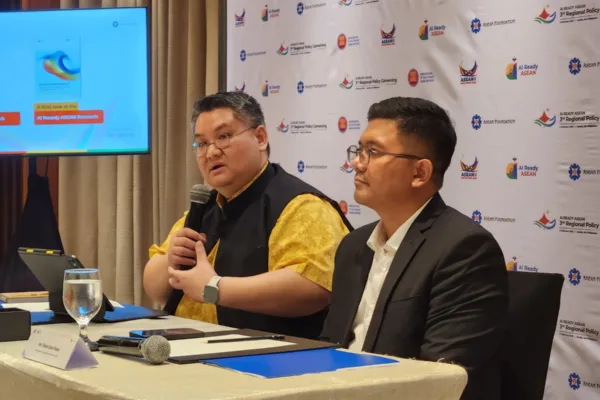Technology has fundamentally reshaped the Philippine car buyer’s journey in a rapidly evolving automotive landscape, as a groundbreaking study by Differential Singapore reveals it is no longer confined to the showroom floor, making digital touchpoints and in-car innovations paramount.
Ford, Toyota, and Nissan have emerged as leaders in Differential’s inaugural 2025 Philippines Customer eXperience Index (CXI) Study℠, showcasing their ability to navigate this tech-driven transformation.

Released on June 17, 2025, the CXI Study stands as the most comprehensive independent evaluation of vehicle ownership in the Philippines.
It meticulously benchmarks customer experience across three critical pillars: vehicle sales, after-sales service, and product satisfaction. Within these, the study uncovers key drivers of brand loyalty, with a clear spotlight on how technology and digital integration is influencing every stage of the purchase and ownership cycle.
The digital drive: From research to purchase

Perhaps the most striking insight from the study is the undisputed reign of digital in the pre-purchase phase. A staggering nearly 97% of Filipino car buyers utilized the internet before making their final purchase decision. This isn’t just a trend; it’s a profound paradigm shift.
Consumers are no longer passively waiting for information; they are actively seeking it online through brand website visits, exploring social media platforms for reviews and community insights, and leveraging third-party portals for comparisons. Digital channels now serve as the primary gateway for connecting with dealers, shaping preferences, and ultimately influencing the choice of vehicle. This signals a move from traditional, showroom-driven sales models to a dynamic ecosystem where a brand’s digital footprint is as crucial as its physical presence.
Product satisfaction: Where technology and innovation shines

Beyond the digital gateway, the study unequivocally identifies product satisfaction as the most important driver of overall customer experience, contributing over two-thirds of the total weight. This isn’t merely about aesthetics or basic performance; it increasingly encompasses the technological sophistication embedded within the vehicle.
Key elements like intuitive user interfaces, advanced entertainment systems, and cutting-edge safety features are central to a Filipino car owner’s contentment.
While Japanese brands, with an impressive average product index of 866 points, continue to lead on established reliability and fuel efficiency, Chinese brands, averaging 841 points, are rapidly closing the gap. This momentum is largely propelled by their aggressive embrace of innovation, particularly with competitive EV (Electric Vehicle) offerings and integration of the latest technology features. The market is clearly recognizing that bold design combined with advanced tech is a powerful combination for winning over discerning buyers.
Ford leads the overall CXI with 868 points, closely followed by Toyota at 865 and Nissan at 859, solidifying their positions at the top. Honda also earns special mention, ranking second in Sales Experience and third in After-Sales Service Quality, demonstrating consistent high-quality interactions across the customer journey – a testament to a well-rounded brand experience that likely integrates technology to enhance touchpoints.
Navigating the future of customer experience

Technology can profoundly enhance both the sales and after-sales service quality
Sigfred M. Doloroso, Country Manager for Differential Singapore, emphasized the critical importance of a holistic approach: “While product remains the backbone of customer satisfaction, the real game-changer lies in what brands can control: delivering an exceptional brand journey through outstanding sales and service execution. That’s where local industry players can truly outshine the competition.”
This statement implicitly underscores how technology, from CRM systems to seamless digital communication tools, can profoundly enhance both the sales and after-sales service quality, transforming the entire customer journey.
The 2025 Philippines CXI Study provides vital insights for automakers, empowering them to refine strategies, anticipate emerging consumer demands, and elevate the overall ownership experience in a market increasingly defined by digital fluency and technological expectation.
As Filipino consumers become more tech-savvy, the success of automotive brands will hinge not just on the vehicles they sell, but on the seamless, tech-enhanced experience they deliver from the very first online click to every interaction throughout the vehicle’s lifecycle.








